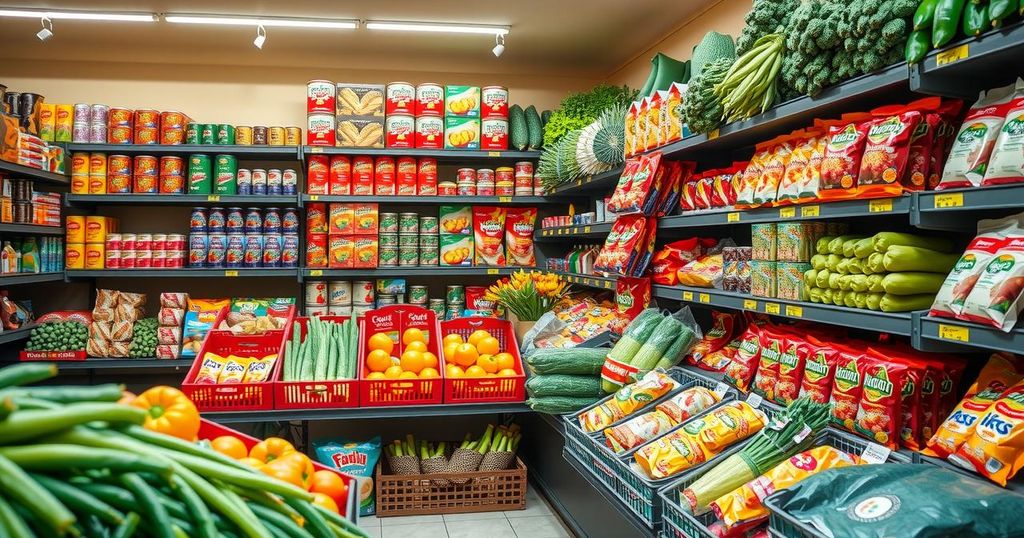As South Africa’s economy recovers, the food sector is set for changes, with lower interest rates and improved GDP fostering consumer spending. Key players like Shoprite show strong growth, while Spar and AVI face challenges. Tiger Brands remains cautiously optimistic about future developments in consumer behavior. The dynamics of food price inflation will further influence the performance of food producers and retailers.
As South Africa’s economy appears to be on the mend, the food sector is preparing for significant changes. Factors such as lower interest rates, improving GDP growth, and potential contributions from the two-pot retirement savings system may enhance consumer spending. A significant question arises: will food producers or retailers benefit the most from this scenario?
The expected growth in GDP and upcoming withdrawals from the two-pot savings system are anticipated to boost consumption in the food sector, which will positively impact food producers’ margins and profits due to a stabilization in commodity price inflation. However, a potential rise in food price inflation in the first quarter of 2025 could shift focus toward food retailers, who typically experience increased valuations when food prices rise, anticipating stronger earnings growth.
Shoprite’s RSA Supermarkets have posted a remarkable 10.4% growth in revenue without increasing promotional subsidies during a period of low inflation, leveraging new loyalty partnerships and expanding store locations. Although like-for-like growth showed a slight decline to 5.4% in the first half of 2025 compared to 8% in fiscal 2024, solid volume growth indicates continued margin improvements. Lower costs from power outages have positively affected trading profits, and Shoprite’s financial health appears strong, with expectations of a net cash position due to proceeds from a proposed furniture sale.
Conversely, while Spar is optimistic about its margin recovery in South Africa and enhancing its portfolio, its latest trading update revealed disappointing revenue growth trends in both South Africa and Ireland. Spar Southern Africa experienced only 3.4% revenue growth, impacted by the planned closure of several grocery stores and inconsistencies in supply chain operations. However, there was progress in reducing operating losses by closing underperforming stores.
AVI’s 1H25 results showed a modest headline earnings per share growth of 9% year-on-year, despite group revenue growth being only 1%. The performance varied significantly across divisions, with the Entyce division achieving a notable 44% growth in operating profit. However, management expressed caution regarding future profit growth, indicating potential slowdowns in the operating environment. Despite facing short-term challenges, AVI is regarded as a quality company and a solid long-term investment.
Tiger Brands reported a 3% growth in revenue over four months, driven by increased volume and price inflation. The company’s strategic initiatives to lower input costs helped sustain competitive price points for consumers. Additionally, Tiger Brands is optimizing capital allocation and has divested its stake in Empresas Carozzi, contributing to a more focused growth strategy. Management remains positive about the consumer environment, asserting it is in an early recovery stage and highlighting ongoing attention on volume and profit.
In conclusion, South Africa’s food sector is navigating a transformative period characterized by economic recovery, shifting consumer behavior, and varying performances among key players. Shoprite appears to be in a robust position, leveraging growth strategies effectively, while Spar faces challenges that could hinder its recovery efforts. AVI’s cautious outlook contrasts with Tiger Brands’ optimistic stance on future consumer recovery. The interplay of these factors will significantly shape the sector’s landscape moving forward.
Original Source: www.zawya.com






